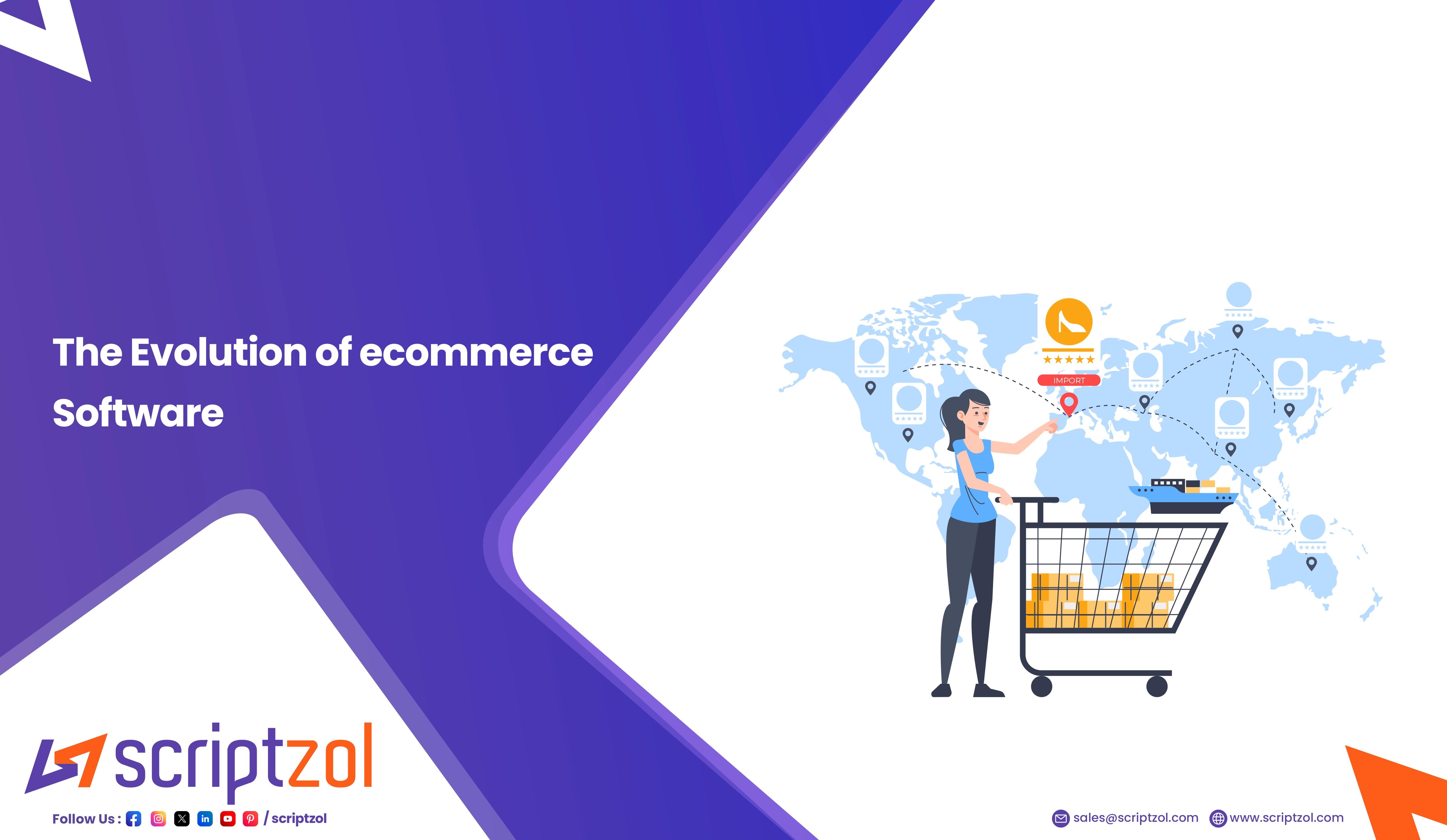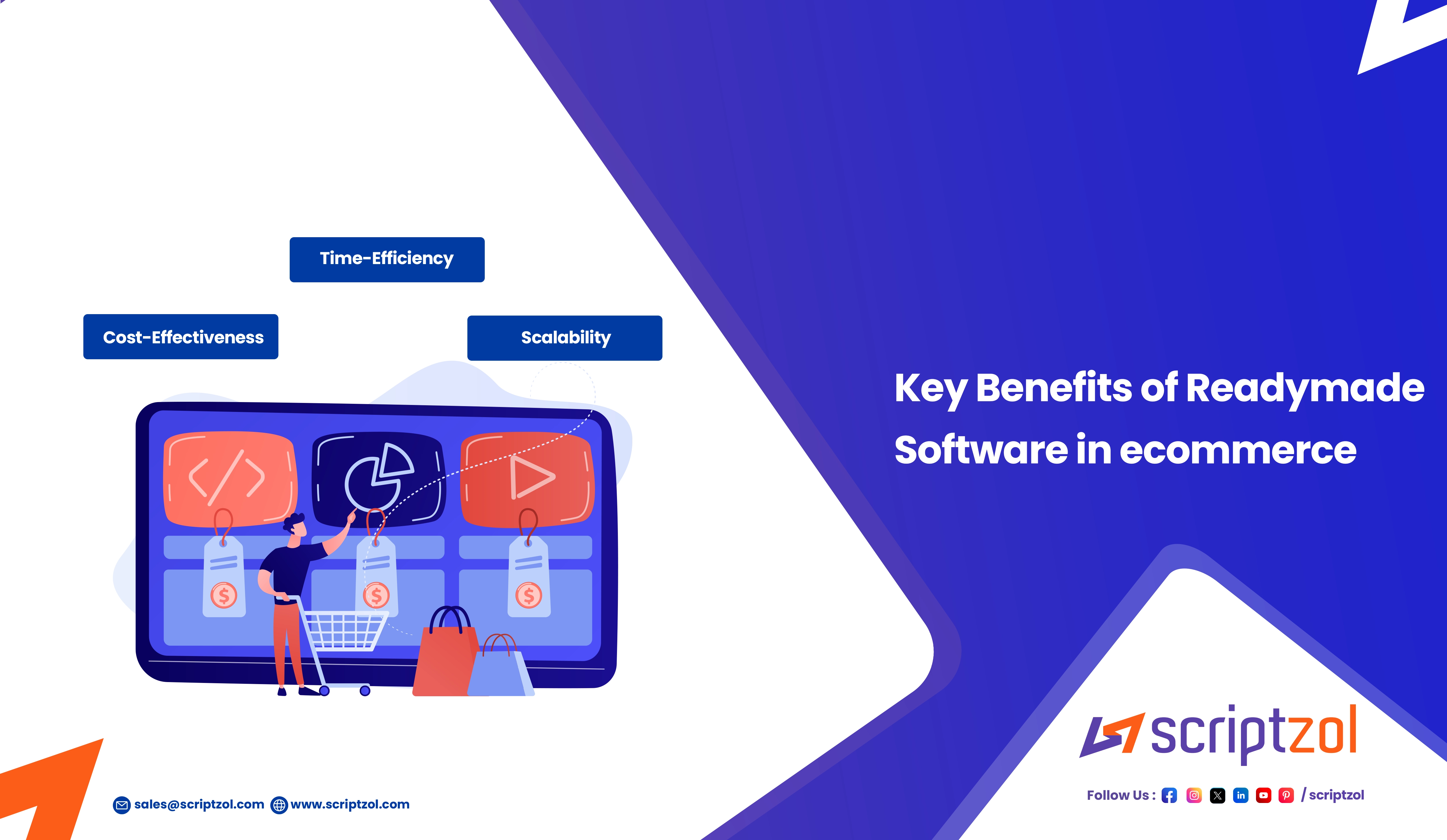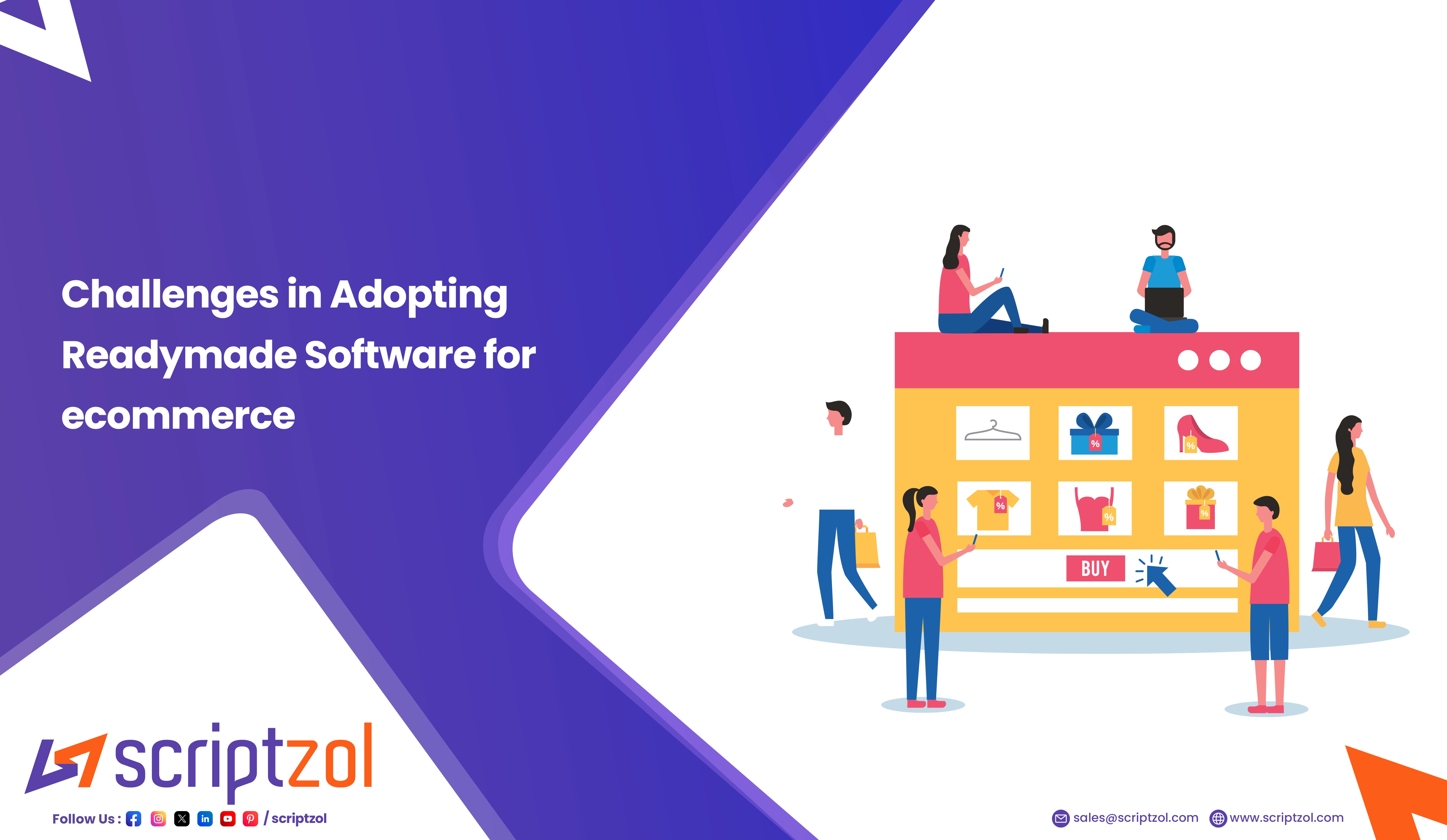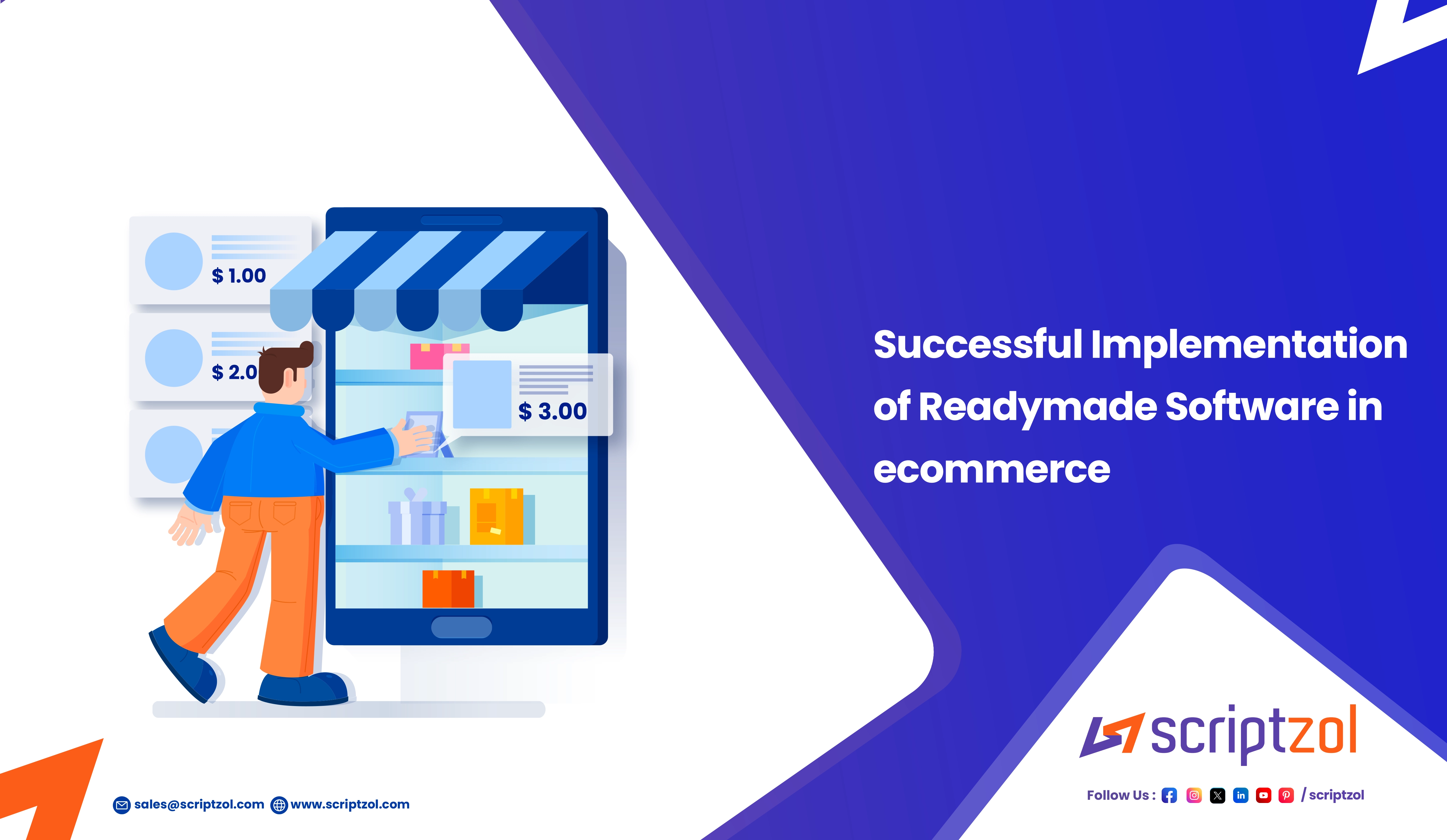
The ecommerce industry is undergoing a significant transformation, thanks to the rapid advancements in technology. Among these innovations, readymade software solutions stand out as pivotal tools for businesses looking to optimize operations and enhance customer experiences. These software solutions range from multivendor clone scripts to comprehensive ecommerce software solutions like Magento 2 and Prestashop modules, catering to various needs within the ecommerce spectrum. In today's competitive market, integrating these technologies has become not just advantageous but essential for businesses aiming to thrive and outpace competitors. This blog explores how ready-made software is reshaping the way ecommerce operates, illustrating its impact through improvements in efficiency, scalability, and customer engagement.
The Evolution of ecommerce Software

Traditional Software Development in ecommerce
Traditionally, ecommerce businesses relied heavily on custom software solutions, which required extensive development and customization to cater to specific needs. This approach often involved hiring skilled developers to build, maintain, and update the necessary infrastructure, from shopping cart systems to inventory management. While this method provided a high degree of customization, it was also time-consuming, costly, and required significant technical expertise, aligning poorly with the dynamic pace of the ecommerce industry.
Rise of Readymade Software Solutions
In contrast, the last decade has witnessed a significant shift toward ready-made software solutions in the ecommerce sector. These solutions, including comprehensive platforms like Magento, Shopify, and customizable plugins for Wordpress and PrestaShop, offer businesses pre-built modules that are easy to integrate and configure. The rise of multivendor clone scripts and readymade clone scripts has democratized technology, making advanced features accessible to even small ecommerce players. Such platforms not only reduce the barrier to entry for online businesses but also ensure they are equipped with robust, scalable, and secure ecommerce functionality.
Key Benefits of Readymade Software in ecommerce

Cost-Effectiveness
Ready-made ecommerce software solutions significantly reduce the financial burden associated with developing a custom platform. By utilizing off-the-shelf solutions, businesses can avoid the high costs of ground-up software development, including hiring developers and prolonged testing phases. This economic efficiency allows small to medium enterprises to allocate resources more effectively, focusing on growth and expansion.
Time-Efficiency
One of the most compelling advantages of ready made software is its time efficiency. ecommerce platforms can be deployed within a matter of hours or days, as opposed to months required for custom solutions. This swift deployment not only accelerates the go-to-market for businesses but also enables rapid scalability and adaptation in response to market demands or consumer trends.
Scalability
Scalability is integral to the success of any ecommerce business. Ready-made software solutions are designed to grow with your business, accommodating increases in products, traffic, and transactions without the need for constant customization. Features such as cloud integration, automated backups, and dynamic resource allocation ensure that ecommerce platforms can handle peak traffic loads seamlessly, providing a consistent and reliable customer experience.
Challenges in Adopting Readymade Software for ecommerce

Adopting ready-made software solutions for ecommerce can indeed propel a business forward but also presents specific challenges that can impact functionality and growth.
Customization Limitations
One primary concern with readymade software is the limitation in customization. These software solutions are designed to cater to a broad market, which means they might not meet specific, nuanced needs of a particular ecommerce business. For instance, a business needing unique features tailored to its customer engagement strategies might find it difficult to adjust or add these functionalities without significant changes to the base code. This sometimes leads to additional costs and a reliance on specialized developers to implement these modifications.
Integration Complexity
Integration complexities arise when there is a need to seamlessly sync the readymade software with existing systems and applications. For ecommerce platforms, effective integration is crucial for maintaining real-time inventory updates, customer relationship management, and seamless payment processes. Often, if the pre-packaged software is not fully compatible with the business's established systems, this can lead to inefficiencies, errors in data handling, and potential disruptions in operations. Overcoming this challenge often requires investing in middleware or custom APIs, potentially increasing overall technology expenditures.
Data Security Concerns
Another significant challenge is ensuring data security when implementing readymade ecommerce software. Given the generic nature of off-the-shelf solutions, they may not always include robust security features tailored to the specific threats an individual ecommerce environment might face. This can leave businesses vulnerable to data breaches, compromising customer data and potentially infringing on data protection regulations. To mitigate these risks, businesses might need to invest additional resources in enhancing security protocols and compliance measures, further influencing budget allocations.
Successful Implementation of Readymade Software in ecommerce

Analyzing successful case studies where readymade software has been efficiently implemented can provide valuable insights for ecommerce businesses considering this route. (A fictional case study) One notable example is a mid-sized apparel retailer who adopted a Magento 2-based ecommerce solution. Initially facing a rapidly evolving market, the company leveraged Magento’s customizable environment to enhance their online store significantly. Key implementations included advanced search capabilities, personalized marketing plugins, and multi-currency support, which altogether improved customer experience and expanded their market reach. Another example is a startup that utilized a multi-vendor clone script to quickly launch a marketplace platform. This allowed them to efficiently onboard multiple sellers without the need to develop complex code from scratch. The platform provided robust backend support for seller management, inventory control, and order processing, propelling the startup into a competitive position swiftly. These case studies demonstrate that while challenges exist, with strategic planning and resource allocation, ready-made software can indeed be a catalyst for ecommerce innovation and success.
Future Trends: The Role of Artificial Intelligence in Readymade Ecommerce Software
Personalization and Customer Experience
Artificial Intelligence (AI) is increasingly being integrated into readymade ecommerce software to enhance personalization and improve customer experiences. AI algorithms can analyze vast amounts of data on user behavior to offer tailored recommendations, dynamic pricing, and personalized marketing messages. This level of customization not only increases user engagement but also boosts sales by making shopping experiences more relevant to each individual customer. Additionally, AI-driven chatbots have become essential in providing real-time customer service, assisting with everything from product inquiries to complex purchase decisions, further enhancing the customer's shopping experience.
Inventory Management and Predictive Analytics
AI is also transforming inventory management in the ecommerce sector. By utilizing predictive analytics, readymade ecommerce software can now more accurately forecast demand and optimize stock levels, reducing both overstock and stockouts. This precision in managing inventory not only cuts down on warehousing costs but also improves cash flow and revenue for businesses. Moreover, AI enhances the accuracy of demand forecasting by analyzing multiple factors such as seasonal trends, marketing campaigns, and global economic conditions. These capabilities ensure that ecommerce platforms can respond swiftly to market changes and maintain an optimal inventory that meets consumer demands efficiently.
Conclusion
The integration of readymade software into the ecommerce landscape marks a pivotal shift in how businesses operate and compete. With the array of solutions available, from multi-vendor clone scripts to Magento 2 development and PrestaShop modules, the possibilities are vast. By adopting these technologies, ecommerce businesses ensure scalability, enhance customer experiences, and streamline operations efficiently. Embracing innovative software solutions not only provides a competitive edge but also caters to the evolving demands of the digital consumer. As technology progresses, the significance of integrating such tools will become more pronounced, making it indispensable for ecommerce ventures aiming for longevity and success in a fiercely competitive market. Investing in these software solutions equips businesses with the necessary tools to adapt, innovate, and lead in the ecommerce industry.
This article was originally published by - https://www.scriptzol.com/blog/how-readymade-software-is-revolutionizing-the-e-commerce-industry

Comments (0)